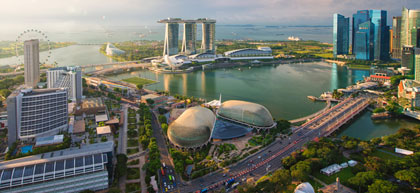About the Floating Data Centre Park
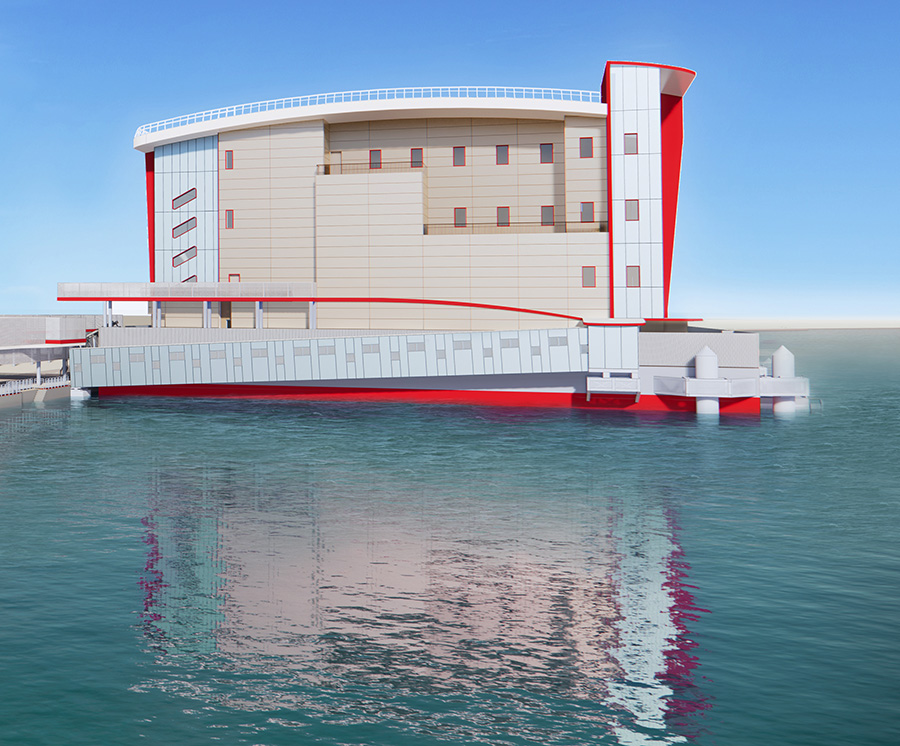
The FDCP features a modular design, which can be scaled up quickly upon customers’ demand. Given the modular design, new floating data centre modules can be readily developed and deployed, while the older floating data centre modules can be recycled for deployment in other locations, contributing to the circular economy. This also helps to free up valuable land for other urban uses, making it a particularly attractive proposition for land-scarce cities.
Situated at near-shore locations, the FDCP aims to harness seawater for cooling, thereby increasing cooling efficiency by up to 80%. It also avoids the use of potable or industrial water in cooling towers and is envisioned to optimize energy usage by integrating LNG and possibly hydrogen infrastructure for onsite power generation.
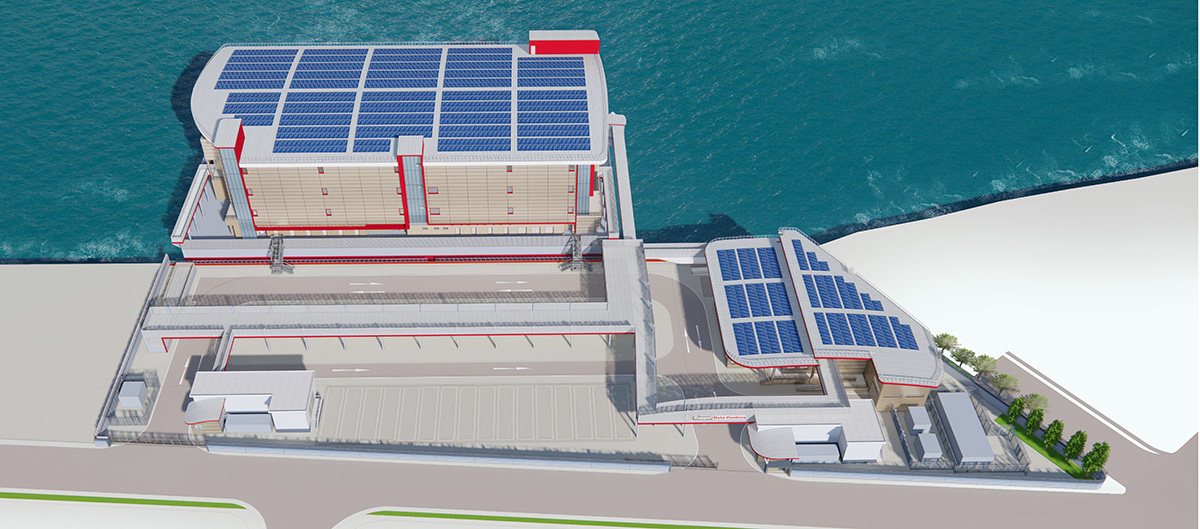
Modular Design
Featuring a modular design, each floating data centre module can be scaled up quickly according to customers’ demand through faster fabrication and an elegant plug-and-play mechanism build in a controlled environment. This greatly improves build quality, and improves the speed-to-market.
Land Demand Alleviation
With the shifting of the space requirement from land to sea, it opens up land for housing, office, industry and other purposes to sustain the growth of digital hubs.
Water Demand Reduction
Conventional data centres consume large amount of treated water for cooling. Floating data centre park will utilise the surrounding sea as a heat sink for cooling and hence reducing treated water consumption, which is a limited national resource.
Future Proof
As digital hubs continue to progress in the modern economy, new leading-edge floating data centre modules can replace the older ones through an elegant plug-and-play mechanism. These older modules will not be obsolete, as they can potentially be moved to other locations, where they can continue to operate.
Improves Energy Efficiency
The data centre park includes an independent off-site power generation plant. Coupled with our technologies, the Power Usage Effectiveness (PUE) will be driven down significantly. This will reduce customers’ operating cost as well as carbon footprint.
As of May 2020, Keppel Data Centres is working with its partners to explore the development of a near-shore FDCP at the Loyang Offshore Supply Base, which is operated by Toll Group. Together with Royal Vopak, Keppel Data Centres is also conducting a feasibility study to assess the commercial viability of establishing LNG and possibly hydrogen infrastructure for the power and cooling plants, which will form part of the FDCP development at Loyang Offshore Supply Base.
In Oct 2020, Keppel Data Centres, City Gas and City-OG Gas Energy Services have also signed an MOU to explore and evaluate LNG procurement and the energy transition to hydrogen to power the FDCP. In line with Keppel’s Vision 2030, which places sustainability at the heart, the exploration of hydrogen infrastructure is part of Keppel Data Centres’ strategy to work towards the decarbonisation of its operations.
In May 2021, Keppel Data Centres, Kawasaki Heavy Industries, Ltd, Linde Gas Singapore Pte Ltd, Mitsui O.S.K. Lines, Ltd and Vopak LNG Holding B.V have entered into a MOU to jointly explore the concept development of a supply infrastructure to bring liquefied hydrogen (LH2) into Singapore to power Keppel’s data centres.
In April 2023, we received approval from the regulatory authorities to proceed with building our Floating Data Centre.
The Floating Data Centre Park is envisaged to be the first-of-its-kind in Singapore, with the vision to pave the way for more sustainable, low-carbon emission and scalable data centres.
- Keppel Group envisioned the development of sustainable data centres through bringing together the capabilities of the Keppel ecosystem.
- Keppel Data Centres formed an inhouse innovation team to explore the possibility of building floating data centre modules with Keppel Offshore & Marine.
- Keppel Data Centres continued to grow partnerships with Keppel Infrastructure to explore the use of energy-efficient and centralized cooling technologies.
- In November, Keppel Data Centres was invited by the Infocomm Media Development Authority (IMDA) to share its concept plan at the IMDA Day.
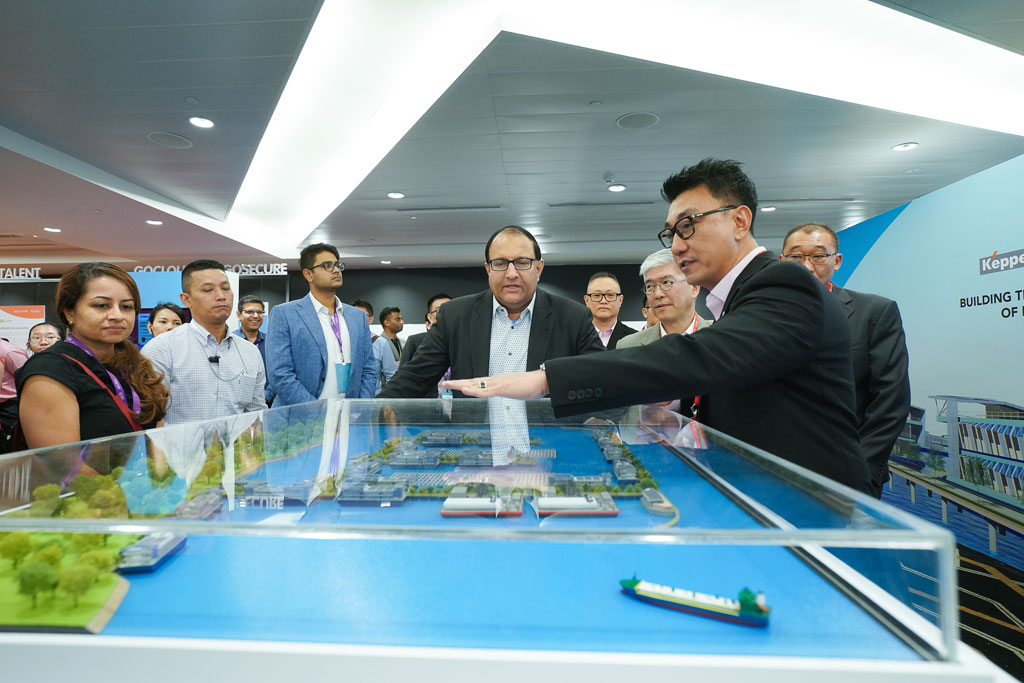
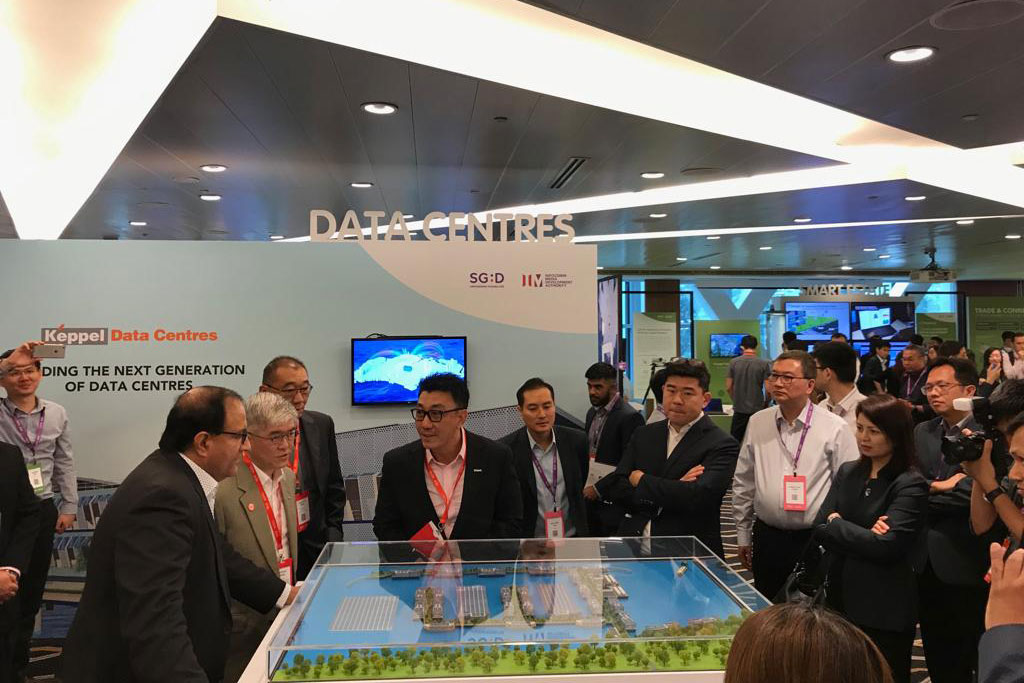
- In February, the project concept was featured in Channel News Asia documentary Land Unlimited as a unique digital infrastructure solution for land-constrained Singapore.
- Click here to read more
- In March, Keppel Data Centres showcased its project concept at SuperComputing Asia 2019.
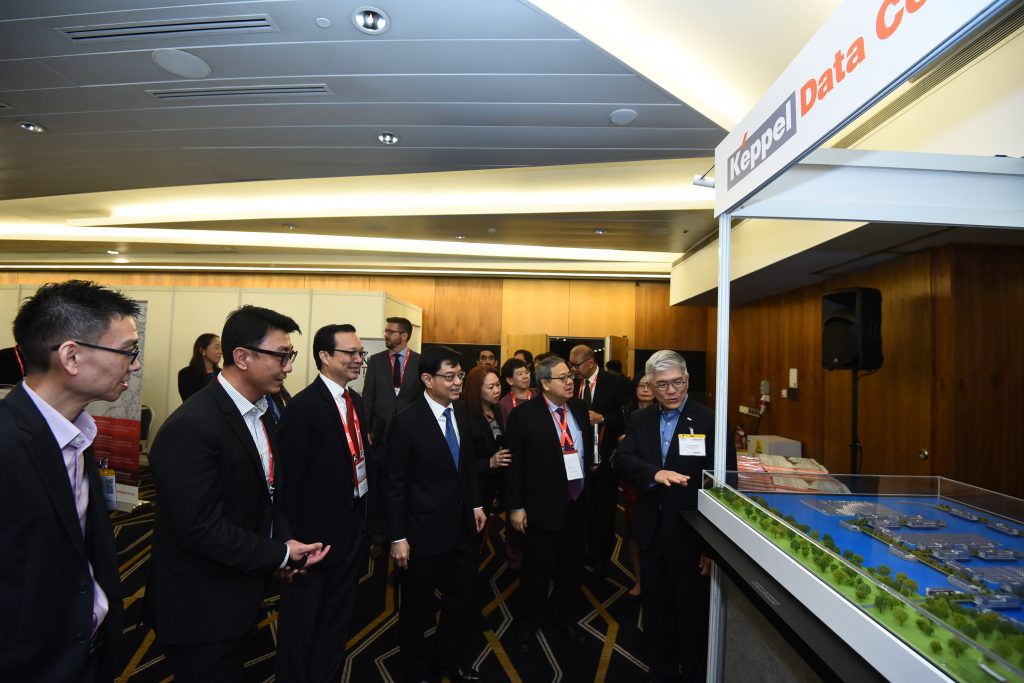
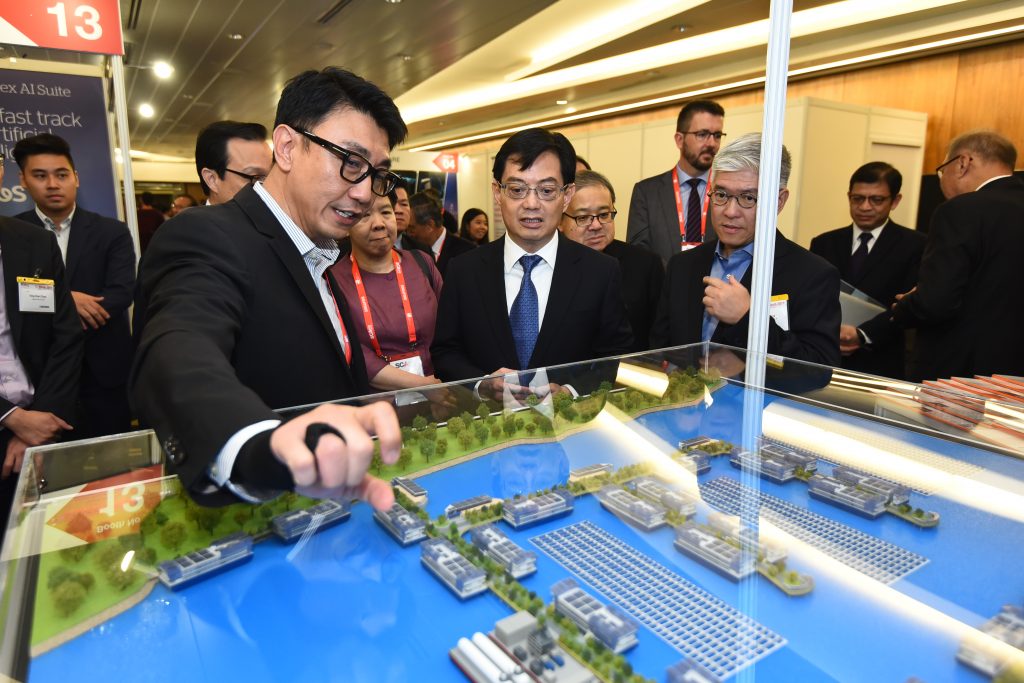
- Keppel Data Centres continued to work closely with government agencies and industry partners to explore the implementation feasibility of the first-of-its-kind floating data centre project in Singapore
- In August, the CEO of Keppel Data Centres, Mr Wong Wai Meng, was interviewed by Channel News Asia on the development of the Floating Data Centre Park.
- Click here to read more
- In April, Keppel Data Centres inked partnership with Toll Group and Royal Vopak to explore Floating Data Centre Park and LNG-to-power solutions in Singapore.
- Click here to read more
- In June, Keppel Data Centres and Mitsubishi Heavy Industries Asia Pacific signed an MOU to jointly explore the implementation of the hydrogen powered tri-generation plant concept for data centres in Singapore.
- Click here to read more
- In October, Keppel Data Centres, City Gas, City-OG Gas Energy Services signed an MOU to explore use of LNG and hydrogen to power the Floating Data Centre Park.
- Click here to read more
- In May, Keppel Data Centres, Kawasaki, Linde, MOL, Vopak LNG signed an MOU to jointly explore the technical and commercial viability of a LH2 supply chain for Keppel’s data centres in Singapore.
- Click here to read more
- In April, Woodside and Keppel Data Centres signed a Heads of Agreement (HOA) to evaluate the potential supply of liquid hydrogen to Singapore from Woodside’s portfolio of planned production facilities. The HOA provides a pathway for the parties to jointly develop further commercial principles for key hydrogen supply chain agreements.
- Click here to read more
- In January, Chevron, Keppel, Pan-United, Surbana Jurong, Air Liquide Singapore, Osaka Gas Singapore, and Pavilion Energy, collectively known as the Low Carbon Technology Industry Consortium (LCT-IC), signed an MOU to collaborate on lower carbon opportunities to support Singapore’s aspiration of achieving net-zero emissions by 2050.
- Click here to read more








